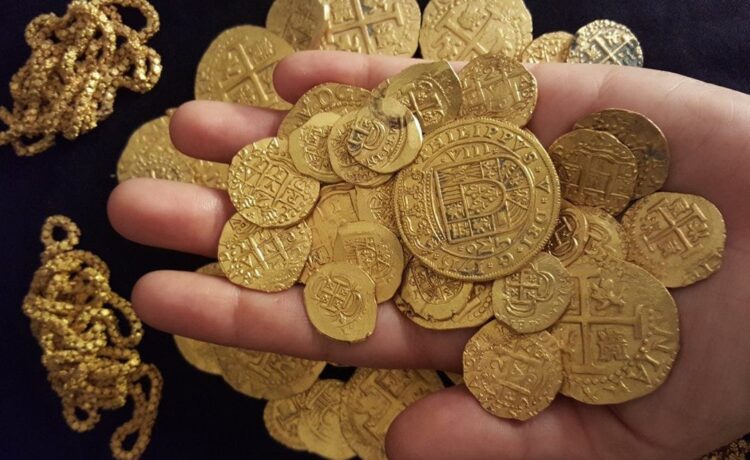- Rep. Juliet Harvey-Bolia, R-Tilton, has introduced a bill to make gold and silver legal tender in New Hampshire.
- Harvey-Bolia argued that gold and silver can hedge against inflation and allow people to hold their wealth.
- Opponents said that allowing payment in gold and silver is impractical.
New Hampshire legislators have introduced a bill to make gold and silver legal tender in the Granite State – again.
Last year, Rep. Keith Ammon, R-New Boston, was the prime sponsor of a bill to restore gold and silver as a method of currency. It didn’t pass, but Rep. Juliet Harvey-Bolia, R-Tilton, who was a co-sponsor last year, is trying again this year.
Her bill, HB 721, would make it so gold and silver must be recognized as a form of currency and be accepted as payment for any transactions in New Hampshire if the buyer and seller agree on its value.
Some states have passed similar legislation recognizing gold and silver as legal tender, including Louisiana, Utah, and West Virginia.
Harvey-Bolia told the NH House Committee on Commerce and Consumer Affairs Wednesday that the measure is a “bipartisan economic justice bill that will help everyone.”
Why make gold and silver legal tender?
Harvey-Bolia said that making gold and silver legal tender would hedge against inflation and allow people, including those with little means, to hold their wealth.
“The big reason for passing legislation like this, which would establish Gold and Silver’s legal tender is basically the three T’s: trust, taxes and taking,” said Harvey-Bolia, adding that gold is “trustworthy” against inflation.
More:Gold hits record high on safe-haven demand amid tariff threats
She said other states, like Maine and Vermont, tax gold and silver even though it is not considered actual money by the IRS or several states. New Hampshire does not, but she said passing this bill would pre-empt that potential problem if the state decided to establish a sales tax in the future.
The bill also specifically allows people to possess any amount of gold or silver in coin or bar form. It is currently legal to own gold in the United States, but the bill would prevent the federal government from “taking” people’s gold and silver in the event that its legal status changes, she said.

Why not make gold and silver legal tender?
Sarah Burke Cohen, a legislative advocate at the New Hampshire Municipal Association, said the group opposes the legislation because local municipalities aren’t set up to accept the precious metals as forms of payment.
“If gold and silver, as written, become legal tender, then people could bring their gold or silver to a town clerk’s office to pay their property taxes,” Cohen said. “Municipalities aren’t set up for security for gold and silver, nor are they set up to be metallurgists and determine the grade of gold and silver.”
She called the legislation “impractical,” and added that the value of gold is volatile.
Natch Greyes from the Business and Industry Association also spoke against the bill, saying that the economy is not set up for the acceptance and trade of gold and silver, locally or nationally.





